


|
"A Temple of Literature!?" Not reading anything about it before arriving, I didn’t know what to expect. A library full of people reading; a massive book store; an achive of ancient manuscripts; I didn’t find any of these. Hanoi's Temple of Literature is located 1.5 to 2.0 kms west of Hoan Kiem Lake. Originally constructed in 1070 to honour Confucist it became Vietnam's first university in 1076. Student studies revolved around the principles of Confucism, literature and writing poetry. The first students were the children of the aristocracy. However from 1442 gifted children of commoners were also allowed to study. It served as a center for higher learning for approximately 700 years. |
The main entrance is the Van Mieu Gate located on the south side. Today the complex has five court yards arranged linearly. I pay the 30,000 dong entrance fee and make my way through the gate and head straight to the Khue Van Cuc, an ornate gate constucted in 1805 which is the gateway to the third court yard.
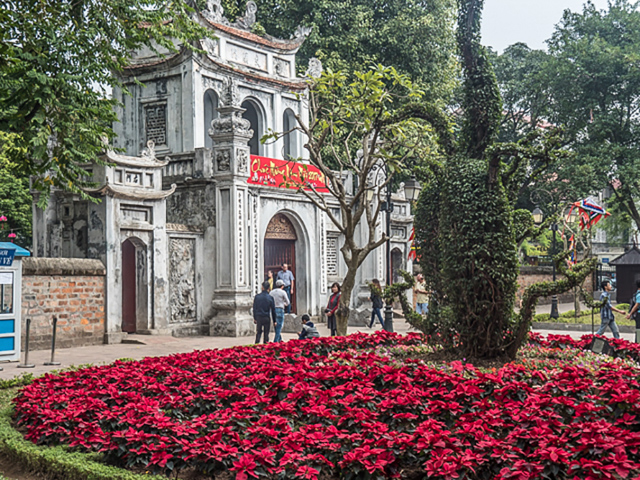
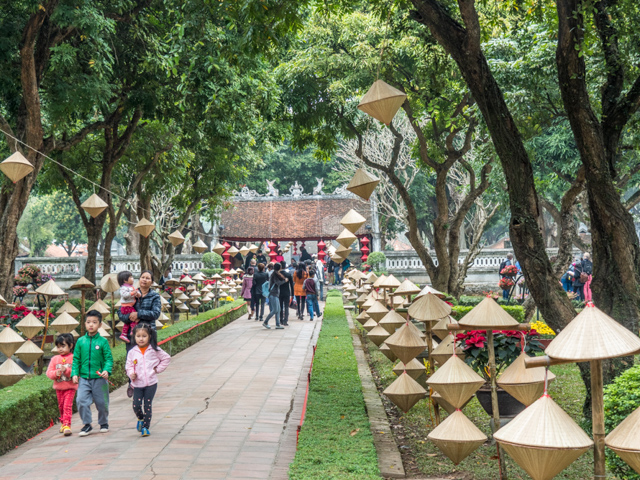
Through the gate and straight ahead is a square pool named the Well of Heavenly Clarity. It is stocked with carp. On the east and west sides are buildings which house tortoise mounted stelaes. In Vietanemse culture the tortoise is the embodiment of endurance, longevity and firmness.
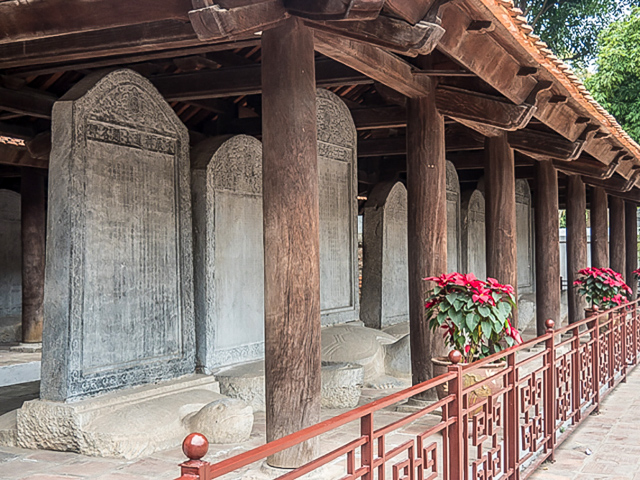
Through the gate and straight ahead is a square pool named the Well of Heavenly Clarity. It is stocked with carp. On the east and west sides are buildings which house tortoise mounted stelaes. In Vietanemse culture the tortoise is the embodiment of endurance, longevity and firmness.
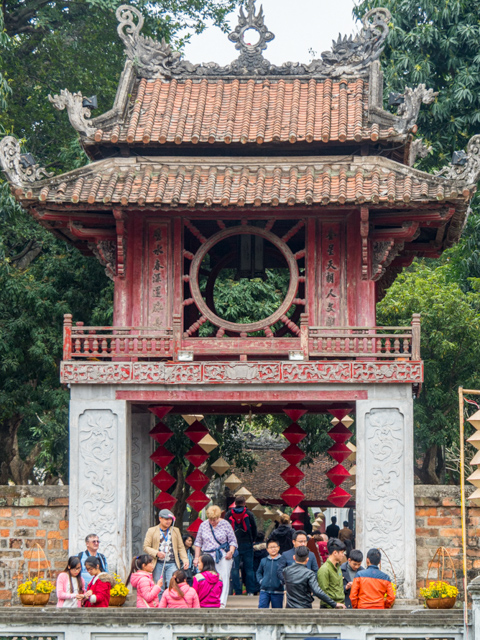
The complex is still used for graduation ceremonies. Graduating students like to have photographs taken of themselves in graduation or traditional Vietnamese dress.
The fourth courtyard, the Sage Courtyard, is covered with a chess board. During the Tet holiday people play the part of chess pieces which are moved around the board by opposing players. North of the chess board is the House of House of Ceremonies. Immediately behind that is the Dai Thahn sanctuary. This is where Confucius and his four closest disciples, Yanhui, Zengshen, Zisi and Mencius are worshipped.
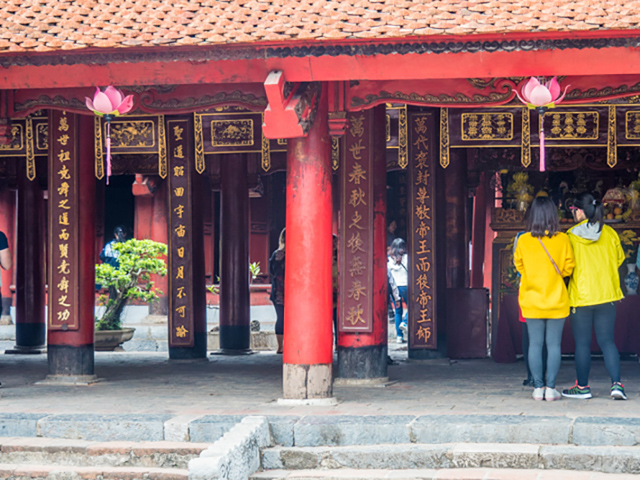
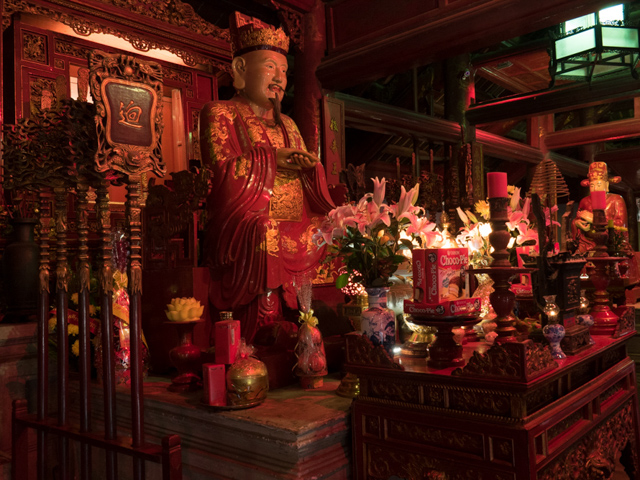
The 5th court yard, named Thai Hoc, was orginally built in 1076. However the current courtyard dates from 2000. The main building is a two story building. On the bottom floor is a statue of Chu Van An who was a Academy Director.
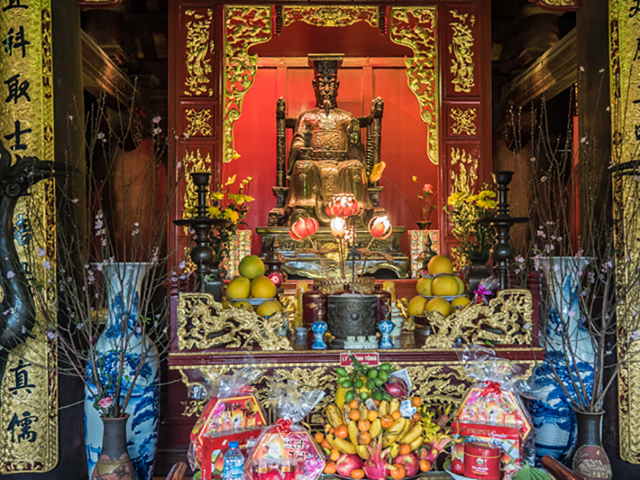
On either side of the main building are small two square buildings, one housing a drum, the other a bell.
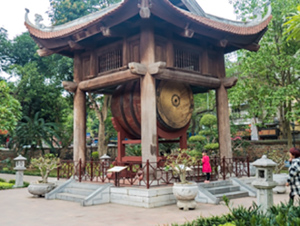
| 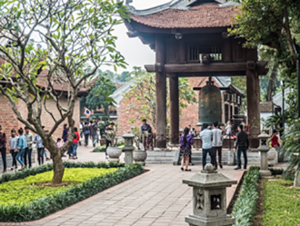
|
Drum Tower |
Bell Tower |
The drum is 2metres wide and 2.65 metres high whereas the bell, cast in 2000, is 0.99 metres wide and 2.1 metres in height.
The Temple of Literature is not a warehouse nor a museum of books and manuscripts. However the name is apt if you think of the term literature as a metaphor for higher learning.
It can be comfortably visited in a morning or an afternoon.